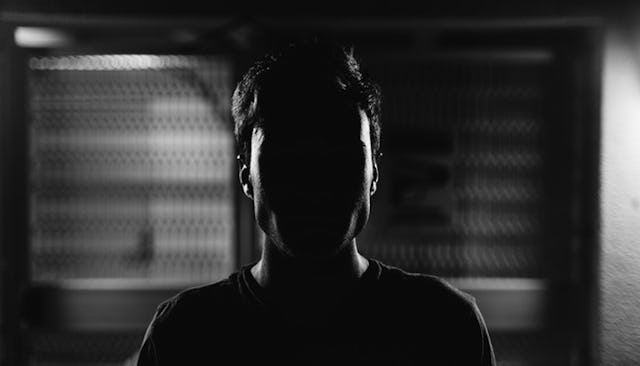I Will Tell My Child The Truth About Her Father

Three weeks after giving birth to my daughter, I found out my husband was a bad man. Sometimes good people do bad things. Sometimes two adults try their best in a relationship, and it just doesn’t work out. And sometimes you find out your husband is a high-functioning psychopath living a double life.
But this man is also my daughter’s biological father, and for five years, I was blissfully, head-over-heels in love with him. So what do I tell my daughter when she’s old enough to ask questions?
Kidshealth.com told me to “Confine negativity and blame to private therapy sessions or conversations with friends outside the home.”
HelpGuide.org told me that what’s best for your child in the long run is having a good relationship with both parents throughout their lives.
Huffington Post’s “The 18 Best Things You Can Do For Your Kids After Divorce” had as their number one suggestion: “Don’t talk badly about the other parent.”
And this all seems like really sound advice. Except…
What if you by mistake married a very bad man? What if you were raised by two lovely parents in an idyllic small town in New England and went to a very good school and worked in film and modeling in New York and then fell really hard for a handsome, charismatic guy and had a big beautiful wedding and three weeks after your first daughter was born found out the man was actually a textbook psychopath?
What do you tell your daughter then?
Since the day I found out who my husband really is, I have lived in a sort of suspended silence, wondering…
– How do I explain to people what happened, and how many details do I give?
– What do I eventually tell my daughter?
– What do I tell myself?
A few weeks after our divorce was finalized, I began cautiously revealing my situation to other women whenever it was appropriate or just plain awkward not to. In almost every instance, the woman I was talking to revealed that she’d had her own experience with a “really bad man.” She may not have had children with him, or she might have. But here’s the thing: No one was talking about it.
Their voices often came out rushed and hushed, as if disclosing top secret information. What struck me most was this sense of shame and embarrassment. The small laugh that said, “I should have known better. Silly me.”
Now that I am moving toward a career in clinical psychology, I know that in most situations a really bad man, a psychopath, a perpetrator, preys on highly empathetic people; the very people who would most likely blame themselves for failing to see the wolf in sheep’s clothing.
But what do I tell my daughter?
My brother-in-law gave me some advice right away after it happened: “It’ll be really simple. You’ll just tell her: ‘It didn’t work out.'” But when I toss those words around, they taste metallic and rotten.
Yes, in a broad sense, it’s true. But it’s also utterly false.
And in the end, maybe telling the truth is the single most important thing we can do for our kids, especially if there was a really bad man in the picture. Because someday my daughter is going to find out that her father has an antisocial personality disorder and has done some really horrible things, and if I choose not to be upfront with her, she won’t be able to trust the one parent she has left.
In order to give myself (and other women I’ve met who have gone through this) a really clear doctrine to follow, I pared what to do down to a few simple words:
– Tell the truth.
– Make it as gentle as possible.
– Answer her questions as truthfully as you can.
– Keep it simple.
In order for our children to grow up and face this often wonderful, sometimes crazy world, we need to be able to speak about really bad things that happen—not by publicly shaming or berating, but by telling the simple truth. When we sugarcoat to protect our children or ourselves, we are, in some ways, encouraging the abusers of the world to go unchecked.
Just yesterday we were walking on the beach; she’s still young enough to want to hold my hand (and not old enough to ask questions just yet). It was one of the first really warm days of May, and I somehow didn’t feel as overwhelmed anymore, knowing that I could (someday) tell her the truth and that she would have a chance to sort through that truth, with me holding her hand.
This article was originally published on